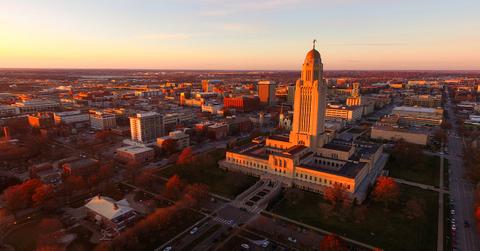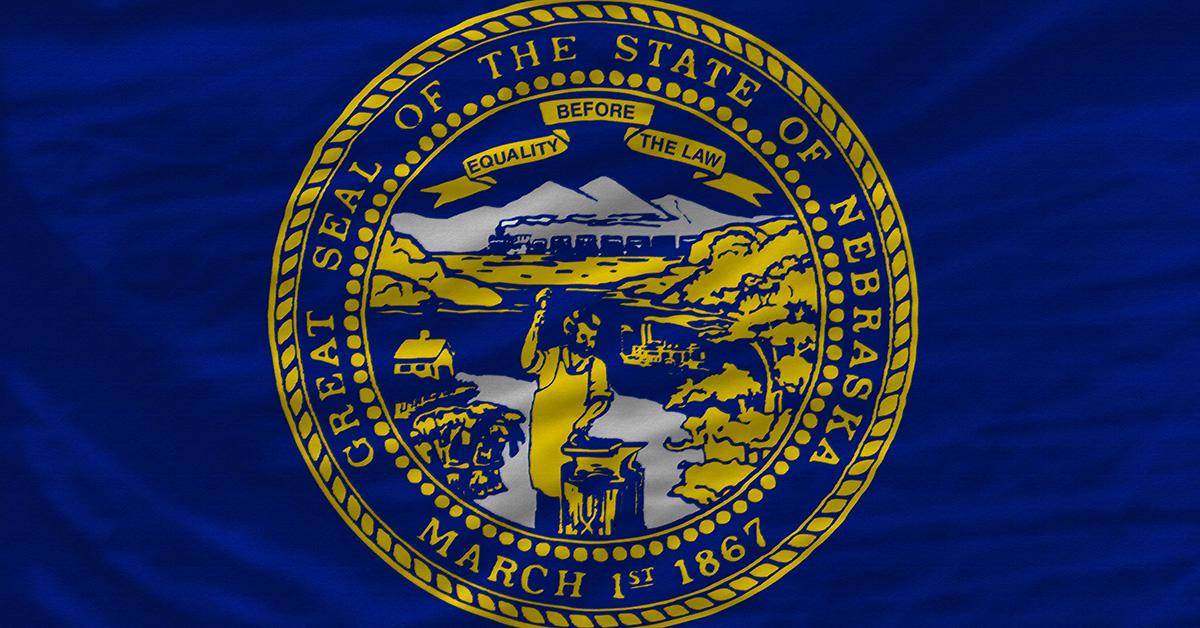Nebraska Is One of Just Two States to Split Electoral Votes, but Why Does It Do That?
The state is one of two states that doesn't award all of its electoral votes to the winner of the state popular vote.
Published Oct. 30 2024, 2:51 p.m. ET

Every four years, Americans across the country are reminded that the person who becomes president is not granted the office because they won the most votes, but because they won the Electoral College. Whatever you think about that system, it's important to note that even within it, not every state works the same way.
While most states allocate all of their electoral votes to whoever won that state's popular vote, some states operate a little bit differently. Both Maine and Nebraska split their electoral votes by congressional district, and many want to know why they allocate their votes that way. Here's what we know.

Why does Nebraska split electoral votes?
Nebraska allocates two of its electoral votes to the winner of the state's popular vote, and it allocates the other three electoral votes it has as its disposal by congressional district.
The reason that Nebraska splits its electoral votes this way is actually relatively simple. The state's legislature believed that this would be a better representation of the will of their voters, and passed a law through their state legislatures in 1991.
For more than a decade after the change as made, though, it had no impact on the state's allocation of electoral votes. It wasn't until 2008 that Barack Obama won the Omaha Congressional district, and Joe Biden also carried it in 2020.
In fact, the district has now become Democratic enough that there was an effort in the Nebraska's legislature to rescind the rule that would have allocated electoral votes by Congressional district. That effort failed because of a single vote.
“It just blew me away. I thought it sounded so good, so fair, and a better way of distributing votes,” DiAnna Schmeck, a former member of the Nebraska state legislature who was crucial to the 1991 bill, explained. “I came home all jazzed and ready to introduce something when the legislature started.”
Maine has allocated its votes in a similar fashion since 1972.
Split electoral votes may be a better proxy for the diversity of a state.
Because states are so large, all of them contain some combination of Democratic and Republican voters. When electoral votes are allocated based on a state-wide popular vote, though, that political reality gets flattened somewhat. Allocating by Congressional district allows the Democratic voters in Nebraska to have a voice, and could also be decisive in this coming election.
Ultimately, though, all of these systems are more convoluted than simply awarding the office to the person who receives the most votes. There are plenty of people who firmly believe in the Electoral College, but it's a system that rewards states with smaller populations and makes it so that most of the country doesn't actually have a say in the outcome.
Because it's part of the Constitution, though, the electoral college likely isn't going anywhere. For now, then, this workaround may make things a little bit more representative in Nebraska and Maine.